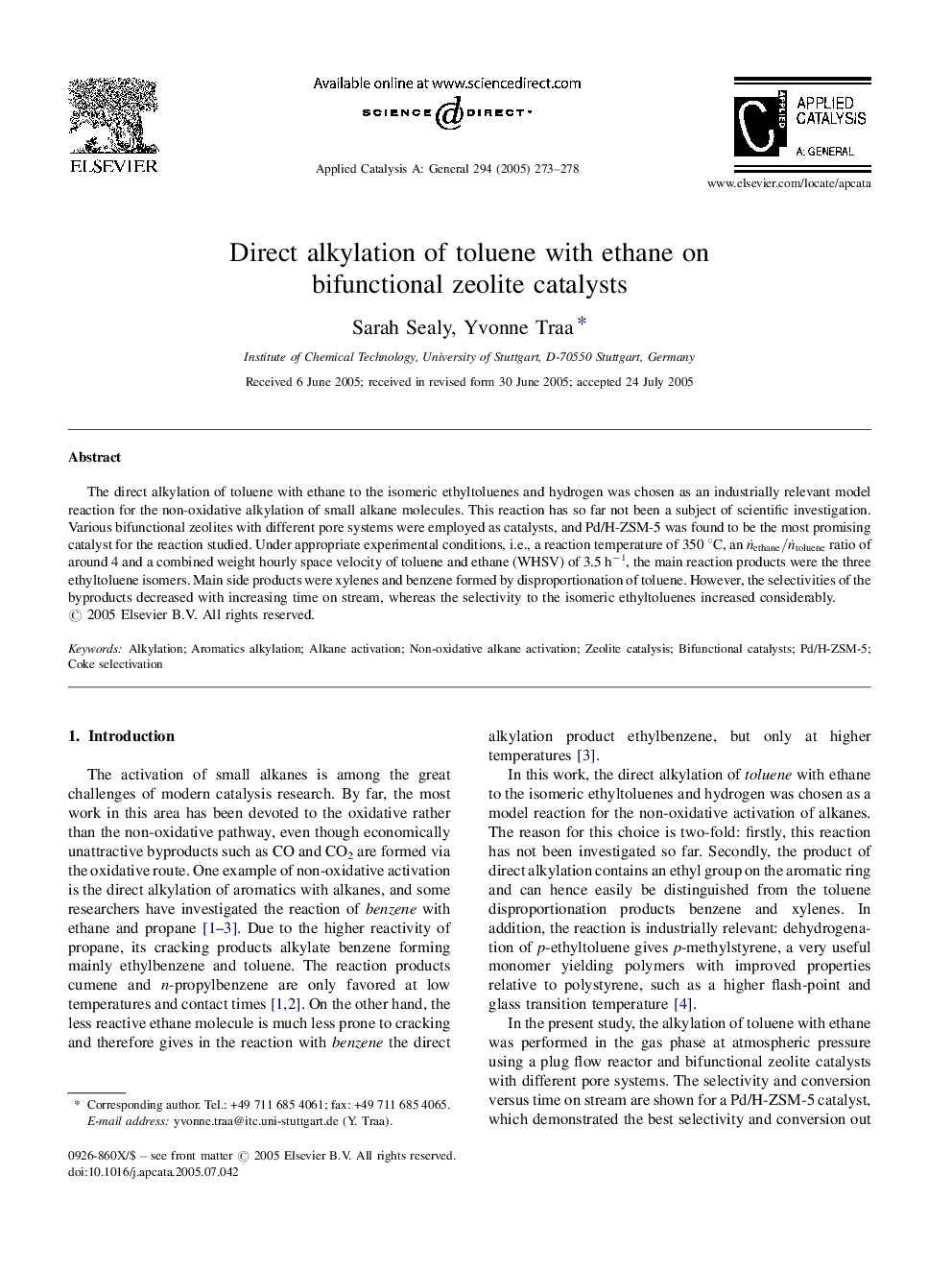| Article ID | Journal | Published Year | Pages | File Type |
|---|---|---|---|---|
| 10238990 | Applied Catalysis A: General | 2005 | 6 Pages |
Abstract
The direct alkylation of toluene with ethane to the isomeric ethyltoluenes and hydrogen was chosen as an industrially relevant model reaction for the non-oxidative alkylation of small alkane molecules. This reaction has so far not been a subject of scientific investigation. Various bifunctional zeolites with different pore systems were employed as catalysts, and Pd/H-ZSM-5 was found to be the most promising catalyst for the reaction studied. Under appropriate experimental conditions, i.e., a reaction temperature of 350 °C, an nËethane/nËtoluene ratio of around 4 and a combined weight hourly space velocity of toluene and ethane (WHSV) of 3.5 hâ1, the main reaction products were the three ethyltoluene isomers. Main side products were xylenes and benzene formed by disproportionation of toluene. However, the selectivities of the byproducts decreased with increasing time on stream, whereas the selectivity to the isomeric ethyltoluenes increased considerably.
Related Topics
Physical Sciences and Engineering
Chemical Engineering
Catalysis
Authors
Sarah Sealy, Yvonne Traa,
